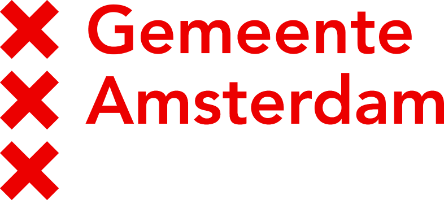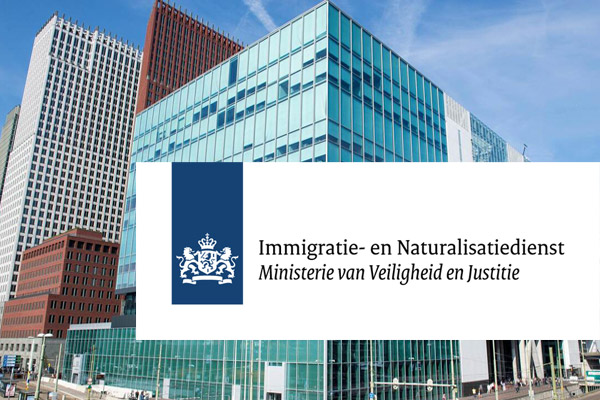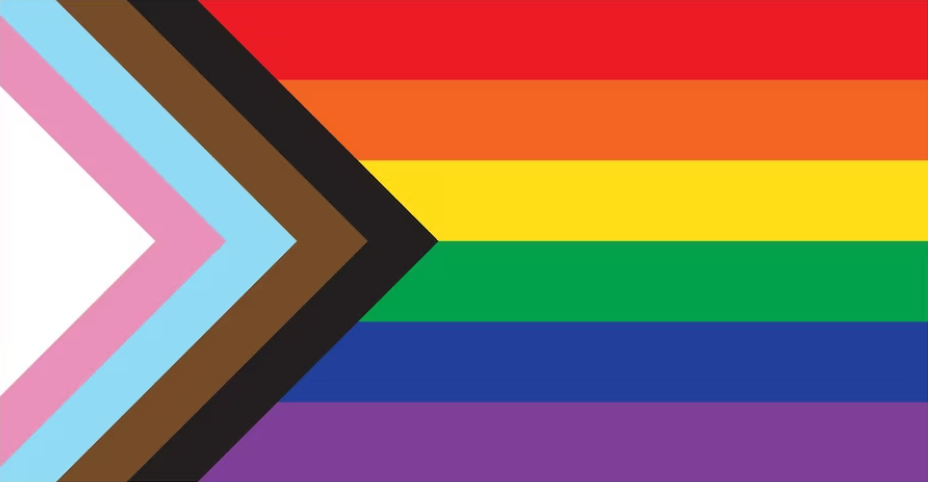Getting SettledIt’s not easy to arrive in a new country and figure out how to arrange everything right away. You are overwhelmed by newness — a new city, a new language, a new home, probably a new job (for at least one family member) and, if you have children, new schools. If you are lucky, you may have a relocation company helping you to settle in. If not, we will provide you with some information here to help you get your new life organized. Before we start on the nitty gritty, here is a random fact you need to know right away: The Netherlands has a public warning system that is tested at noon on the first of Monday of each month, except on religious or national holidays, including Remembrance Day (May 4). For basics on day-to-day living in the Netherlands, in English, IamExpat and I amsterdam both do a fantastic job of providing information. I amsterdam has a lot of helpful information on settling in and life in Amsterdam. For official things like registering with the gemeente (municipality) when you move here or getting a BSN number (burgerservicenummer, which is like a Social Security number) or a DigiD (digital identification used to access government websites), the two websites cover these topics and more. It's worth exploring both websites to see who you need to contact for what and what you need to do if you are moving here without any relocation help. For dealing with Dutch resources, Google Translate is handy online and has a useful app. You can type in words, scan them with your phone’s camera, or even use the microphone for a verbal translation. If you install Google Chrome on your computer or phone, it can translate entire websites for you. There are a few things worth pointing out, however. Official AdministrationThe GemeenteYou will inevitably have to take care of some official administration at the gemeente during your time in the Netherlands. You have to register (inschrijven) within five days of arriving in the Netherlands if you plan to stay for more than four months. Similarly, you will have to deregister (uitschrijven) before you permanently leave the country. If eligible, you have six months to exchange your driving license (rijbewijs) for a Dutch one. Read this article to see if you qualify; if not, you will have to take the theory and practical driving exams to get a Dutch license. If you have a car, you will often need a parking permit (parkeervergunning) depending on where you live. To find parking information for your specific area, check your local gemeente website. This is usually town + .nl (amsterdam.nl, haarlem.nl, etc.), and if not, you should be redirected to your gemeente when you try it. INDThe IND (Immigratie- en Naturalisatiedienst or Immigration and Naturalisation Service) is the department that handles immigration, i.e., work and/or residence permits. If you stay long enough and decide you want to make the Netherlands your permanent home, they also handle permanent residency and citizenship applications. You usually need to have documents like birth and marriage certificates legalized with an apostille for work and residence permits. It is best to arrange apostilles before you arrive in the Netherlands since it has to be done by the authority which issued the document. You can find contact information for each US Secretary of State here, but it is often the Department of Public Health which actually issues the apostilled document. It is critical to know that all Dutch-issued identification belongs to the government (residence permits, driving licenses, passports, etc.). If yours is lost or stolen, you will need to file a police report before applying for a new one. You will be asked to turn in your old ID when getting a new one. Also good to know is that everyone over the age of 14 must carry ID at all times. For non-EU citizens, this can be a passport, Dutch residence permit, or, in some cases, a driving license. SVBOne agency that might slip under the radar is the SVB (Sociale Verzekeringsbank or Social Insurance Agency). Most people working in the Netherlands have social insurance contributions taken out of their salaries (see svb.nl for exemptions). Since the Netherlands has a social insurance treaty with the US, most Americans working in the Netherlands are entitled to receive quarterly child benefit payments (kinderbijslag) for their children up to age 18. The SVB should automatically contact parents of children born in the Netherlands within a few weeks following the registration of the child's birth at the gemeente. If your child was born elsewhere, you can also apply for child benefit. |
|
| Banking / Credit Cards / TikkieBanking & TikkieThe banking system here is very different from that in the US — for starters, checks don’t exist here. Many stores no longer accept cash (contant), only debit cards (pay by pin). It’s common here to pay for purchases via bank transfer (overmaken), so there is no need to be suspicious if someone asks for your bank account details. Once your bank account is set up, you can use your bank’s app to manage most payments and transfers, but some payments or amounts may need to be done online by logging in to your bank’s website. Direct debit (incasso or machtiging) is a very common way to pay utility bills or other monthly or recurring payments. You may also receive requests to pay bills or invoices by bank transfer. You can also easily pay friends back for things (such as a movie ticket, splitting a lunch bill, etc.) the same way, using your bank’s app. When people owe you money, you can use Tikkie, an app that helps you request payment from someone. Anyone with a Dutch bank account can use Tikkie, and some banks also have their own in-app methods of requesting payment from someone (such as ING’s betaalverzoek). When shopping online on Dutch websites, you’ll find that iDEAL is a common payment method for transferring money directly from your bank account to a merchant. Once you are used to the system, you will wonder why something similar is not used in the US. Before you get your local bank account set up, it’s good to know where you (and future visitors) can use your U.S. bank cards. Dutch debit cards (PIN cards) work on the Maestro network. You can find ATM locations here where you can use a US bank card on Mastercard, Maestro or Cirrus networks. To use a US bank card from the Visa or Plus network, look here. You can use cards on the Plus network at ABN AMRO and Royal Bank of Scotland ATMs. You can use cards on the Cirrus network at ABN AMRO, ING and Rabobank. If you need to transfer money to or from a US bank, Transferwise is good for large sums. PayPal can also be used to transfer smaller sums for a small fee. Credit cardsCredit cards are less common here and do not work in all stores (especially grocery stores). They are more likely to be accepted in restaurants or at hotels. Usually used for larger purchases or on international websites, credit cards issued by Dutch banks are paid off monthly like charge cards, unlike true American credit cards where you can just pay a minimum monthly amount. To be able to repay over time with interest, you have to specifically request this credit feature, called Gespreid Betalen Faciliteit in Dutch. ICS is a major issuer of Visa and Mastercard cards, and American Express (AMEX) is also available in the Netherlands. AMEX has various cards for KLM Flying Blue members which help you accrue KLM miles. To read more about obtaining a credit card in the Netherlands, click here. |
UtilitiesNationwideIn the Netherlands, you have a choice of providers for most utilities. Easy Nuts (nut = utility) is a free service for expats to help them select trusted utility providers; they also provide flexible contracts. You can compare prices from energy companies, mobile telephone providers, TV and internet providers, and insurance companies. Partner Pete is another free service to help you set up utilities. They specialize in helping expats arrange mobile phone contracts as well as internet and energy connections in their new homes. There are several choices among energy (gas and electricity) providers. Each one has different rates, energy sources, etc. Gaslicht.com lets you compare your options and helps you sign up for the best option for you (it’s free). You can switch every year (or when your contract is up for renewal) to get a better rate, and Gaslicht can help you do that (and send you reminder emails). Typically, you pay the same amount each month, based on estimated usage, and at the end of 12 months you will either owe the energy company a bit more or they will give you a refund. You only pay for what you use. Prijsvergelijken.nl (prijs = price, vergelijken = to compare) is just one of many websites that you can use to compare rates on phone, internet and TV services, and insurances, but it’s only in Dutch. Ziggo is the largest cable provider; they also can provide internet. T-Mobile provides home internet, and will discount your rate if you also purchase cell phone service from them. KPN is another popular TV, telephone and internet provider. AmsterdamWaternet is the only home water provider in Amsterdam. Depending on your individual setup, it may be a flat monthly rate based on apartment/home size and number of occupants or a variable bill each month based on a smart meter. In addition to the cost of water itself, Waternet will also send a tax bill to everyone registered in the municipal register (bevolkingsregister). This bill includes a wastewater purification tax (zuiveringsheffing) and a maintenance fee for maintaining the sewers and monitoring the dikes and other components of the Dutch water level (watersysteemheffing). Municipality tax (gemeentebelasting) also contributes to the cost of this. To register with Waternet, contact them on telephone number 0900 93 94 (local rate). Make sure you note the water meter reading when moving into a new home and also when moving out. It is also possible to give Waternet the meter reading online. For problems with the sewers, call 0900 93 94 (local rate). Beyond AmsterdamOutside of Amsterdam, glass fiber internet is fairly widely available from a number of providers. It’s really fast! Vitens provides drinking water in the provinces of Flevoland, Friesland, Gelderland, Utrecht and Overijssel, as well as in some municipalities in Drenthe and Noord-Holland. Garbage, Recycling and DonationsEach gemeente has its own procedures for waste collection and recycling. To find a local afvalbrengstation (garbage dump) and to see what you are permitted to throw away or recycle there, search on your local gemeente website. What can be recycled is similar around the country, although some gemeenten collect recycling on a regular basis rather than having underground collection containers. This excellent article from xpat.nl provides a thorough overview of all things recyclable. Gemeente AmsterdamAmsterdam replaced regular weekly garbage pick-ups with underground containers in many areas. There are recycling containers for glass (glas), paper/cardboard (papier/karton) and textile (textiel) all over the city and some areas also have containers for leftover garbage (rest or restafval). The theory behind the underground containers is that birds and other animals won't be able to pick open garbage bags (which results in garbage strewn across the streets). Depending on the population density of your neighborhood, the containers may fill up quickly. You should then find the next closest container and deposit your garbage or recycling there. However, sometimes people leave trash next to the container, which is forbidden. Workers from the gemeente will go through improperly disposed of waste, and if they find out who it belongs to, there is a minimum fine of €95 for the offender. For a complete overview of garbage sorting and bulky waste collection, please see the relevant links for your neighborhood: Centrum, Nieuw-West, West, or Zuid. For other areas, please visit the Gemeente Amsterdam webpage about household waste. If a container is full or broken or there is another sort of incident to report (bicycle wrecks, loose pavement tiles, noise from bars/restaurants or people on the street, broken traffic lights, lampposts and clocks), you can use this online form (in Dutch) or call 14 020. Other GemeentenAmstelveen has a mix of underground containers and waste collection. You will find information (in Dutch) about waste and recycling, including a calendar and information about waste collection frequency. Haarlem has different rules and procedures for dealing with garbage, which you can read about here (in Dutch). 'T Gooi also has its own rules about waste (in Dutch). If you live in a different gemeente, search for the name of your town and afval to find out more about how to get rid of trash and recycle in your area. DonationsOne person's trash is another person’s treasure! If you have items in good, clean, usable condition that you no longer want, there are several ways to get rid of them. Clothing, pairs of shoes, accessories (caps, hats and handbags) and household textiles are just a few of the things which can be donated in closed plastic bags in Sympany containers around the country (they are often above ground and green, but not always). You can read this for a complete list of what’s accepted in the containers (in Dutch). Damaged clothing may also be donated. These items get recycled rather than reused. Packmee is another way to get rid of unwanted textiles. You box up your unwanted items, print out a free shipping label, take your package to the nearest DHL counter and off it goes. Packmee only accepts items that can be reused. The few things on their exclusion list are work clothes, foam blankets, chair covers, ski boots and dirty, damaged or torn clothing. If you wouldn’t use it or wear it, please don’t donate it! Rataplan is a kringloopwinkel (thrift shop) that accepts clothing, toys, furniture, appliances and more and can even pick up your items (by appointment only, so plan in advance). Of course, you can always offer your giveaways for free (gratis) on Facebook Marketplace and also on Marktplaats (a Dutch eBay/Craigslist hybrid). Religious services in EnglishWith all the chaos that can come with moving, you may be looking for a familiar house of worship to put routine and comfort back into your life. The Netherlands isn’t a particularly religious country, but you can find services in English in many cities. Iamsterdam has a list of religious services in Amsterdam, including Christian churches and synagogues. For a thorough list of Christian church services across the Netherlands, including locations in Haarlem, Hilversum and Utrecht, read here and here; you can find a list of synagogues here. (Note: The accuracy of these websites is not guaranteed, so please check links to individual houses of worship first.) If you are looking for foods certified as Kosher, read here for brands available at supermarkets nationally. To find information on other religions, you can search these maps for a mosque (moskee) or look for Buddhism (Boeddhisme) or Hinduism (Hindoeïsme). |
|











 All members of the AWCA enjoy membership to
All members of the AWCA enjoy membership to  The AWCA is committed to fostering an inclusive environment that welcomes individuals of all backgrounds. Our members are valued and respected regardless of their ethnicity, gender, age, ability, or orientation. We celebrate diversity in our community.
The AWCA is committed to fostering an inclusive environment that welcomes individuals of all backgrounds. Our members are valued and respected regardless of their ethnicity, gender, age, ability, or orientation. We celebrate diversity in our community.